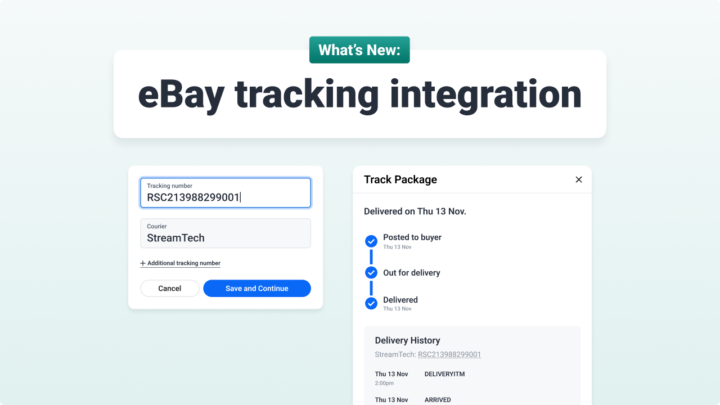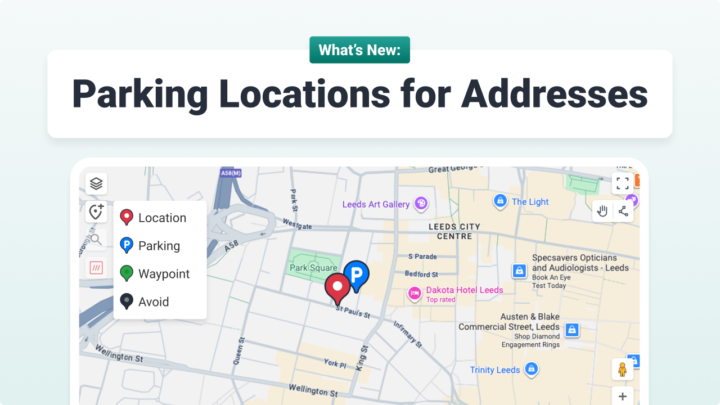We are compiling resources that could help those in the transport and logistics sector to navigate the current COVID-19 pandemic.
We’ll continue to update resources in this blog post and in this thread on Twitter.
First, we shared a post on the blog last week about COVID-19 in the logistics sector. You can read the post here.
We’re organising other resources and advice below:
- Work together to fill resource gaps (sign up to utilise drivers, vehicles, warehouse space, etc. for the national pandemic effort)
- Support drivers as key workers (resources on driver welfare)
- Pivot to home delivery (to keep businesses – and the economy – running)
The Traffic Commissioners have offered applause, recognising key workers within the road transport industry for their important work in the national fight against the Coronavirus (COVID-10) outbreak.
Work together to fill resource gaps
We shared ideas previously about how the sector should pull together and share resources to ensure people have access to vital food, medical supplies, etc.
See our original thread on this for our initial thoughts on COVID-19 and the logistics sector, and take these words from our founder Dave Pickburn:
“For the logistics sector, now is the time to work together to ensure that people have access to the food, medication and other essentials they need. With that in mind, delivery and logistics businesses should be able to team up, work together & share resources (drivers, vehicles) – so goods get distributed efficiently. We’re all trying to play our part and hopefully, this is a way businesses in the logistics sector can help”.
We’ve been matching up Stream subscribers with over and/or under capacity, but there are many larger groups which are much better placed to organise resources:
- The FTA (Freight Transport Association) have launched the fantastic #LogisticsHelpsLogistics initiative, so take part in that if you have under or over capacity right now by searching the # on Twitter or LinkedIn.
- CILT (the Chartered Institute for Logistics and Transport) is coordinating cross-sector collaboration. Fill out this form if you have resource availability right now.
- Another great initiative (especially for those with underutilised drivers/vehicles right now) is the NHS COVID-19 logistics support network, which you can sign up to take part in here.
- This one is especially relevant for anyone with facilities to store or transport food or other frozen or chilled goods: The BFFF (British Frozen Food Federation) have launched a transport support platform, which you can sign up for here.
- The UK government have also launched a service where businesses that may be able to help in the country’s the COVID-19 response can register. Transport and logistics (for moving goods or people) is highlighted as an area where support is needed.
Support drivers as key workers
The DfT has confirmed that the work of the logistics sector is considered essential and should continue to the greatest extent possible throughout the COVID-19 crisis. This applies to “haulage drivers, managers, warehouse staff and all other logistics professionals”. It is classed as essential to keep all supply chains moving (not only those related to essential food and medical supplies).
You can read the Traffic Commissioners statutory document for COVID-19 contingency and emergency planning, which sets out the response they have adopted, to “support the industry through flexible working practices and a proportionate approach”.
Any travel related to the operation of logistics businesses (including for vehicle maintenance or to a place of work) is considered essential travel at this time. Precautions like social distancing and handwashing are still in force for these workers. The DfT has communicated this with police forces and provided a letter to the FTA and RHA (Road Haulage Association) which can be used as evidence of ‘essential travel’, should workers in the sector need it.
As delivery drivers and logistics staff are now identified as key workers, their welfare is paramount. Here are some resources for looking after drivers:
- First, read the DfT (Department for Transport) and PHE (Public Health England) COVID-19 guidance and general precautions for staff in the transport sector.
- Drivers’ hours’ rules have been temporarily relaxed for drivers supplying supermarkets with food and other essential items. Get information on the temporary relaxation of the enforcement of EU drivers’ hours’ rules from the DfT and DVSA (Driver and Vehicle Standards Agency) here. You can also get guidance from DfT and DVLA on recording mobile working time for furloughed drivers under EU and AETR drivers’ hours and tachograph rules.
- Essential workers (including drivers) can now go online to book COVID-19 tests for themselves and their households, if they are showing symptoms
- The governments PPE Plan does not include transport and logistics workers amongst those who would benefit from clinical PPE, based on the current evidence. Instead, they advise practising good hand hygiene and social distancing, to minimise the risk of infection. We believe wipes/sanitiser gel should now be considered part of the drivers’ PPE, and made available in the cab when possible.
- Read and share this guide on cleaning and disinfecting your mobile devices from our partners Zebra Technologies.
- The DfT and HSE have produced a letter reminding businesses of their obligations to provide access to suitable hygiene facilities for drivers visiting their premises (under the Workplace (Health, Safety and Welfare) Regulations 1992).
- See the guidelines on working safely in or from vehicles (including information on distancing, cleaning and PPE)
- Get the FTA and CILT COVID-19 Good Practice Guide for Logistics Operations here.
- The HSE (Health and Safety Executive) has released guidelines for driver welfare. They advise that “All drivers must have access to welfare facilities in the premises they visit as part of their work”. Handwashing facilities should be made available where possible.
- The government have updated guidelines on social distancing for the transport sector.
- The HSE has also released general information on social distancing in the workplace, with advice for employers with staff still attending a workplace (like drivers), to ensure employees follow PHE guidelines on social distancing (maintain a 2-metre distance from others) and hygiene (wash their hands with soap and water often and for at least 20 seconds).
- As with any other colleagues at this time, you should check in regularly with drivers and make sure they are okay. You could even add COVID-related items to the driver’s daily walkaround checks to help keep your drivers safe:
- Is the driver, or anyone in their household, displaying any COVID-19 symptoms (high temperature or a new, continuous cough)?
- Does the driver have antibacterial wipes/gel in the cab?
- Has the driver cleaned their hands, surfaces in the cab and their device?
Training and certification
- Auditing – The Traffic Commissioners have issued guidance on remote audits. These temporary changes will enable operators and auditors to carry out audits remotely during the pandemic.
- Driver CPC – DfT and DVSA have announced that Driver CPC (Certificate of Professional Competence) requirements are temporarily changed, to allow bus and lorry drivers who cannot complete compulsory Driver CPC training to continue to drive.
- Expiring HGV licences – bus and lorry drivers whose licences are due to expire (or have expired since 1 January 2020) can now apply for a temporary 1-year licence without the need to provide the routine D4 medical normally required for licence renewal.
- Learner Drivers – Both theory and practical driving tests have been suspended to protect people from the outbreak. Critical workers (including those in the transport sector) can still book an emergency test to get out on the road.
- MOTs – Most lorries, buses and trailers are exempt from MOTs for 3 months and most cars, motorcycles and vans are exempt from MOTs for 6 months.
Protect businesses throughout the sector
Businesses have to keep their operations running so that they are able to support staff and come out of the lockdown in a position to continue trading. In fact, the HSE emphasise in their information on social distancing in the workplace, that employers should “keep your business open… It is important for business to carry on” and advise ensuring employees follow PHE guidelines on social distancing and hygiene.
A joint industry body letter has been sent to the Prime Minister, requesting extra help for the profession during the coronavirus pandemic. The letter, from CILT, the RHA, CCF (Cold Chain Federation), BAR (British Association of Removers), APN (Association of Pallet Networks) and the Transport Association requests further support to prevent “widescale business collapse that could reduce capacity by as much as 50%”, offering suggestions for UK government on ways to ease some of the pressures on UK supply chains.
Business information
- General COVID-19 advice for the freight transport industry from DfT and the FCO (Foreign and Commonwealth Office)
- And COVID-19 advice for HGV and PSV Operators (Heavy Goods Vehicles and Public Service Vehicles) from the Traffic Commissioners
- Enforcement of new (stricter) TfL (Transport for London) rules that were due to come in for freight vehicles driving in the capital has been temporarily delayed by at least four months, to “to allow the freight industry to focus on its core operations during the pandemic”
- For businesses that have to cease or restrict operations, look at some of the general information about that:
- General COVID-19 support for businesses information from the Department for Business, Energy & Industrial Strategy Public Health England
- Information about the Coronavirus Job Retention Scheme (and putting staff on furlough or temporary leave due to COVID-19) from HMRC
- It is also worth noting that most councils have localised information and support for businesses available on their websites:
- Other Leeds businesses can see Leeds City Council’s advice here
- Other businesses in Nottingham can see Nottingham County Council’s advice here
- Wherever you are, check your local council website for information, support and advice
- There is also special funding available from Innovate UK, for businesses with a technological innovation that could help the UK’s response to new and urgent needs during and after the COVID-19 pandemic.
Offering home delivery
We’ve already heard from businesses looking to launch new home delivery operations, to get products direct to customers within social distancing advice.
Read our advice on offering home delivery here.
Our partners Brightpearl also have a fantastic resource on delivering direct-to-consumer here.
The biggest change COVID-19 will likely see in the home delivery market is a push to provide contactless proof-of-delivery. This can minimise the risks to drivers and to customers by minimising contact. Offer doorstep delivery and capture ePOD in the form of a photograph only and signed by the driver. The RHA has released some practical legal advice on safely collecting POD during the COVID-19 outbreak.
Lastly, make sure to complete the FTA’s Coronavirus Logistics Impact Survey here, the All-Party Parliamentary Group (APPG) on Road Freight and Logistics survey here.
The Transport Committee is also calling on workers and members of the public for information about the implications of Coronavirus on the transport sector. By contributing to feedback, we can all have a better understanding of exactly how the situation is playing out across the sector.



